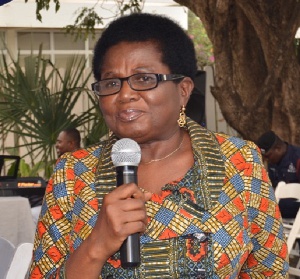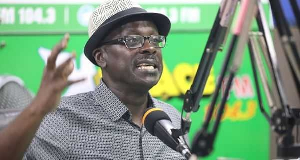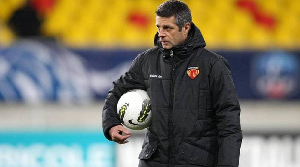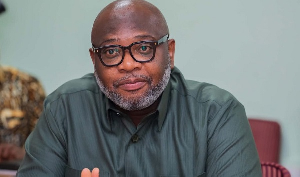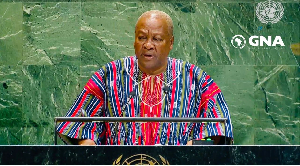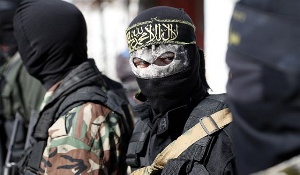The Justice Brobbey Commission has proposed the creation of six new regions.
The six are to be carved out of four of the current 10 regions in the country.
The proposed new regions are the Western North, out of the current Western Region; Bono East and Ahafo, out of the current Brong Ahafo; Savannah and North East, out of the current Northern Region and Oti out of the current Volta Region.
In two weeks’ time we shall know the outcome of the referenda being held and that will hopefully be the end of the matter. And we shall move on to another matter, hopefully.
My musings today are not really meant to stoke the controversy that has accompanied the discussion on the creation of the regions, especially the Oti.
But I suspect that is a forlorn hope.
The very mention of the name Oti or Volta seems to raise temperatures.
It is the name, the nomenclature that has been agitating my mind.
Someone put it to me the other day that part of the reason some people in the Volta Region were so upset about the prospect of the creation of an Oti region was the name.
If the government did not have malice towards the Volta Region, I was being asked, why is the proposed region being carved out of the Volta not being called Volta North, just as the proposed region being carved out of the Western Region is to be called Western North?
If it is called Volta North, then the two will be seen to have a relationship with each other, whereas, naming it Oti sounds like severing all ties between the two areas.
I do not have an answer but the question has led me to wonder about how and why we get attached to names for which there cannot really be any rational explanation.
Volta
The Volta, as we all know is the name of the main river in our country.
It is not a name that any of the people near the river call it.
The Ewes certainly don’t call that river, Volta; we call it Amu.
When I was young, I knew it was a culturally important river because if a stranger arrived in an Ewe home and you wanted to find out if the person spoke or understood Ewe, the question will be asked if the visitor has drunk or drinks Amu.
The question could be interpreted as has the visitor been given the welcome water to drink, but in reality, you are trying to find out if he speaks or understands the Ewe language.
I discovered when I entered Volta Hall that the Akans call that river Firaw, and that was the name we called the Volta Hall magazine.
I tried unsuccessfully to change it to Amu, but that is another story.
I later on found that it was the Portuguese that gave the name Volta to the river and it is supposed to mean the bend, the river of Return because that was where they used to turn around their boats.
Volta is also an Italian word for a quick-moving Italian dance that was popular during the 16th and 17th centuries.
Volta in Italian is also a piece of music, written for or in the rhythm of this dance, in triple time.
There was also a Count Alessandro Volta, (1745-1827) an Italian physicist after whom the volt is named.
He studied electric currents and invented the voltaic pile and the battery.
Volta also means a turning point or point of change in a poem, most commonly a sonnet.
So, the word has an interesting etymological history. But for us, Volta is the river in Ghana, formed by the confluence of the Black Volta and the White Volta which flows south into the Bight of Benin.
Volta is also the name of one of the regions.
Name
The name only became something that identified those in the region currently called Volta when it was named Trans Volta Togoland, or TVT as a Trusteeship administered by the British between the First World War and the eve of Ghana’s independence when it became Volta Region.
Trans Volta would indicate that you would cross the Volta to get there. I always find it interesting that you do not enter the Volta Region on crossing the Adomi Bridge, indeed you remain in the Eastern Region until you reach Asikuma.
I know many of the names our regions are called do not really fit in their geographical positioning, but we hold on to them for reasons I cannot decipher.
The Central Region is certainly not in the centre of anything. Once upon a time, when there was only The Colony, the current Central Region might have been in the centre of the geographic entity, but since Ghana came into being, it is not, yet it is still called the Central Region.
In much the same way, the Eastern Region is not in the eastern part of Ghana. What is called Volta is in the eastern part of Ghana but I wouldn’t dare suggest it should be called the Eastern Region.
The Western Region is in the western part of the country and one can see why it is called that.
Ashanti joined the entity with a political and geographic identity, and when Osagyefo carved out Brong Ahafo from the Ashanti Region, there was no suggestion at the time that he was creating a tribal region. All I recall is that the Ashantis were being taught a lesson.
Now, two more regions are being carved out of this Brong Ahafo Region, Ahafo and Bono East, but there doesn’t seem to be any outcry from people attached to the entity called Brong Ahafo.
I like Savannah, it describes a geographical reality.
I suppose Northern and North East are north of something and will show that on the map, but that is not something anyone is worrying about at the moment. Upper East and Upper West describe where they are and they are not in anybody’s way.
And so the question remains, why have the people in the area north of the Volta Region chosen the name of another river, Oti, a tributary of the Volta, for what they hope to be their new region? Their area is covered by the river Volta more than the southern part of the current Volta Region.
And why do the people in the Volta Region cling to this word Volta, which is not even their language and treat it as though it was some fetish? At least call it by your own name?
Opinions of Saturday, 15 December 2018
Columnist: Elizabeth Ohene

